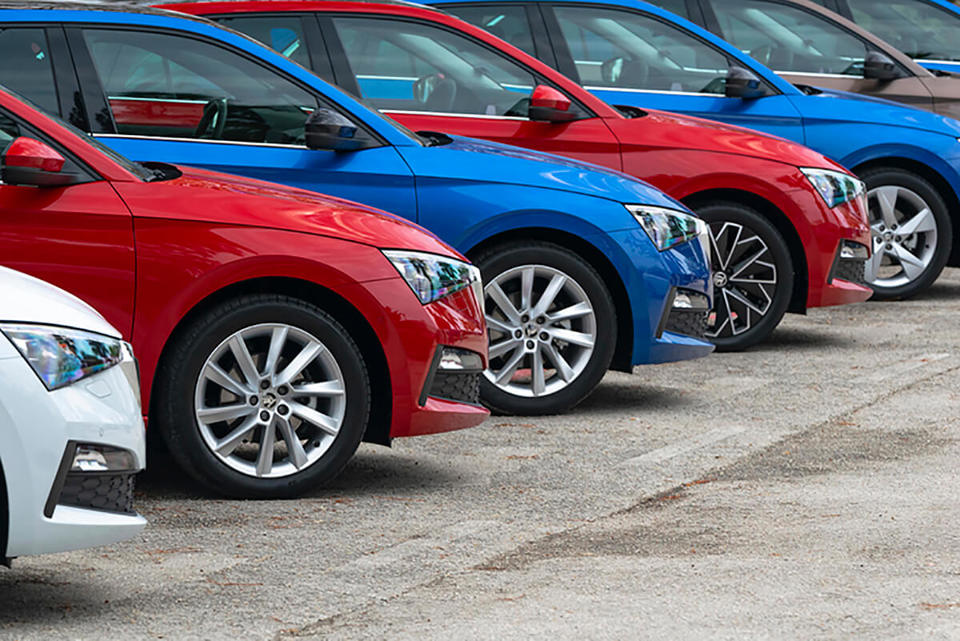The Government says it is committed to helping public sector fleets ‘buy British’ vehicles and is reforming procurement rules where possible to help achieve that objective.
A spokeswoman for the Cabinet Office told Fleet News: “We want to support British companies and British manufacturing and we are reforming public procurement to help do so.
“Giving businesses sight of our future procurement plans will allow them to invest and skill up to win contracts with us. And unlike in the past, by actively engaging with businesses we will ensure that our procurement processes do not mitigate against British interests.”
The comments came in the wake of a report from Britain’s largest trade union, Unite, that too few vehicles procured by public sector fleets - Government departments, local authorities, police fleets and the like - did not carry a ‘made in Britain’ label.
Just days after the report ‘Driving Growth’, which outlined a 10-point plan to further accelerate UK automotive industry expansion, was published, the Foreign and Commonwealth Office was criticised for failing to buy British-made cars for its major embassies overseas. This came despite the department’s own guidance to source vehicles in the UK wherever possible.
The Financial Times (May 30) reported that only three out of 17 cars stationed at Britain’s Brussels and Washington embassies were built in Britain. The Foreign and Commonwealth Office subsequently told the paper that less than a third of cars in its embassies around the world were made in Britain - typically manufactured by Jaguar Land Rover.
Banging the drum for Britain Lord Digby Jones, a former trade minister and ex-head of employers’ organisation, the CBI, told the paper: “That is an outrage. Unless you want a people carrier, the UK makes every type of car available and embassies should use them.”
The Foreign and Commonwealth Office said it was aware that the use of British made vehicles offered an important opportunity to market UK products and was an important consideration influencing decisions.
The Government Procurement Service is responsible for providing a framework through which public sector organisations can procure their fleet vehicles.
Last year approximately 20,000 models were purchased through the Service’s vehicle purchase framework, of which more than 17,500 were purchased by non-Government departments such as public sector health service and local authority organisations. Such bodies have the option to buy through the framework or use other procurement routes to meet their fleet requirements.
The ‘buy British’ only approach is hampered by the UK’s membership of the European Union and its signature being attached to a variety of international agreements. These dictate that suppliers from Europe and various other countries must be treated on an equal footing to UK-based organisations.
Defending the Government Procurement Services’ purchasing strategy a spokeswoman said: “Only sourcing UK-built vehicles would put us in breach of these agreements. Our fleet procurement strategy is designed to meet the core operational requirements of our customers cost effectively regardless of brand, using standardised product ranges to maximise competition and deliver best value for the taxpayer.
“Whole life costs form a key part of our evaluation criteria, taking into account the true cost of the vehicle over its lifetime.”
Although the Cabinet Office says it is reforming public procurement to help support British companies and British manufacturing, the spokeswoman for the Government Procurement Service added: “Sourcing only British built vehicles would certainly restrict the level of competition and may hinder our objective to meet the core operational requirements of our customers effectively as well as potentially breaching procurement rules.
“Government and public sector organisations require a wide variety of vehicles for a range of purposes some of which may not be available as British build.”
Read next week’s Fleet News to see what fleets think about Unite’s ‘buy British’ campaign.














Patriot - 02/06/2012 16:05
Defending the Government Procurement Services’ purchasing strategy a spokeswoman said: “Only sourcing UK-built vehicles would put us in breach of these agreements." Really? So perhaps someone can explain how the French Govt.always use vehicles manufactured in France? You will never,ever see French government officials in BMW/M-Benz/Jaguar or Range Rovers so obviously the fear of any penalties from the EU are dismissed in France-and rightly so. Ditto the German government and it's 'buy German' policies. The lackeys running the British government's vehicle procurement department are just jobsworths with no allegiance to British manufacturing.The same highly paid people will be responsible for Britain's demise as a manufacturing nation.Shame on you.